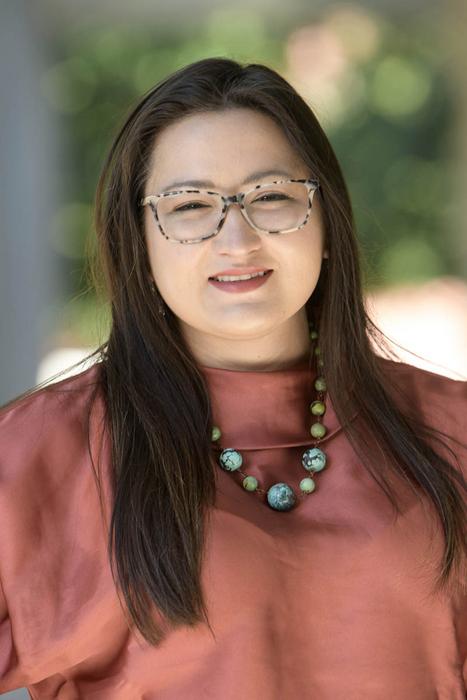A researcher at the University of Arizona Mel and Enid Zuckerman College of Public Health received a $750,000 National Institutes of Health grant to study the asthma risks associated with the use of cleaning and disinfecting products among nurses.

Credit: UArizona Health Sciences
A researcher at the University of Arizona Mel and Enid Zuckerman College of Public Health received a $750,000 National Institutes of Health grant to study the asthma risks associated with the use of cleaning and disinfecting products among nurses.
Cleaning processes in health care facilities involve an inherent “risk-risk tradeoff.” Increased use of cleaning and disinfection products leads to increased work-related asthma risks and simultaneously a decrease in occupational-infection risks.
Preliminary survey data indicate that nurses are generally willing to increase infection risks to maintain lower asthma risks if they think they will recover.
“Translating these concerns into cleaning and disinfection protocol changes is challenging due to logistical constraints and the lack of awareness about asthma risks,” said principal investigator Amanda Wilson, PhD, an assistant professor in the Zuckerman College of Public Health’s Department of Community, Environment and Policy.
Wilson will use the five-year National Heart, Lung and Blood Institute grant to gather data that can advance methodologies for relating tolerable occupational respiratory-disease risks to nurses and guide public health policies.
In 2022, there were more than 3 million registered nurses in the United States and more than 56,000 of them worked in Arizona, according to the U.S. Bureau of Labor Statistics. Asthma affects more than 27 million people in the United States, or about 1 in 12 Americans, according to the Asthma and Allergy Foundation of America.
The study, “Work-related Asthma Risk for Nursing Staff Conducting Cleaning and Disinfection: Translation of Risk-risk Tradeoff Methodology,” is funded through a K01 Mentored Research Scientist Career Development Award that provides support for early-career researchers.
“Dr. Amanda Wilson earned her PhD with us here in the Zuckerman College of Public Health, and she is on her way to becoming an outstanding public health researcher,” said Iman Hakim, MD, PhD, MPH, dean of the Zuckerman College of Public Health. “We are so proud of all she has accomplished. This new award shows that she is on her way to making a real difference in public health and respiratory research.”
Wilson’s mentors from the Zuckerman College of Public Health include adjunct professor Lynn Gerald, PhD; professor Paloma Beamer, PhD; and adjunct professor Phil Harber, MD, MPH. Other mentors include Benjamin Wilfond, MD, of the University of Washington, Susan Chilton of Newcastle University and David Resnik, JD, PhD, of the National Institute of Environmental Health Sciences.
This research is supported in part by the National Heart, Lung and Blood Institute, a division of the National Institutes of Health, under award number K01HL168014.




